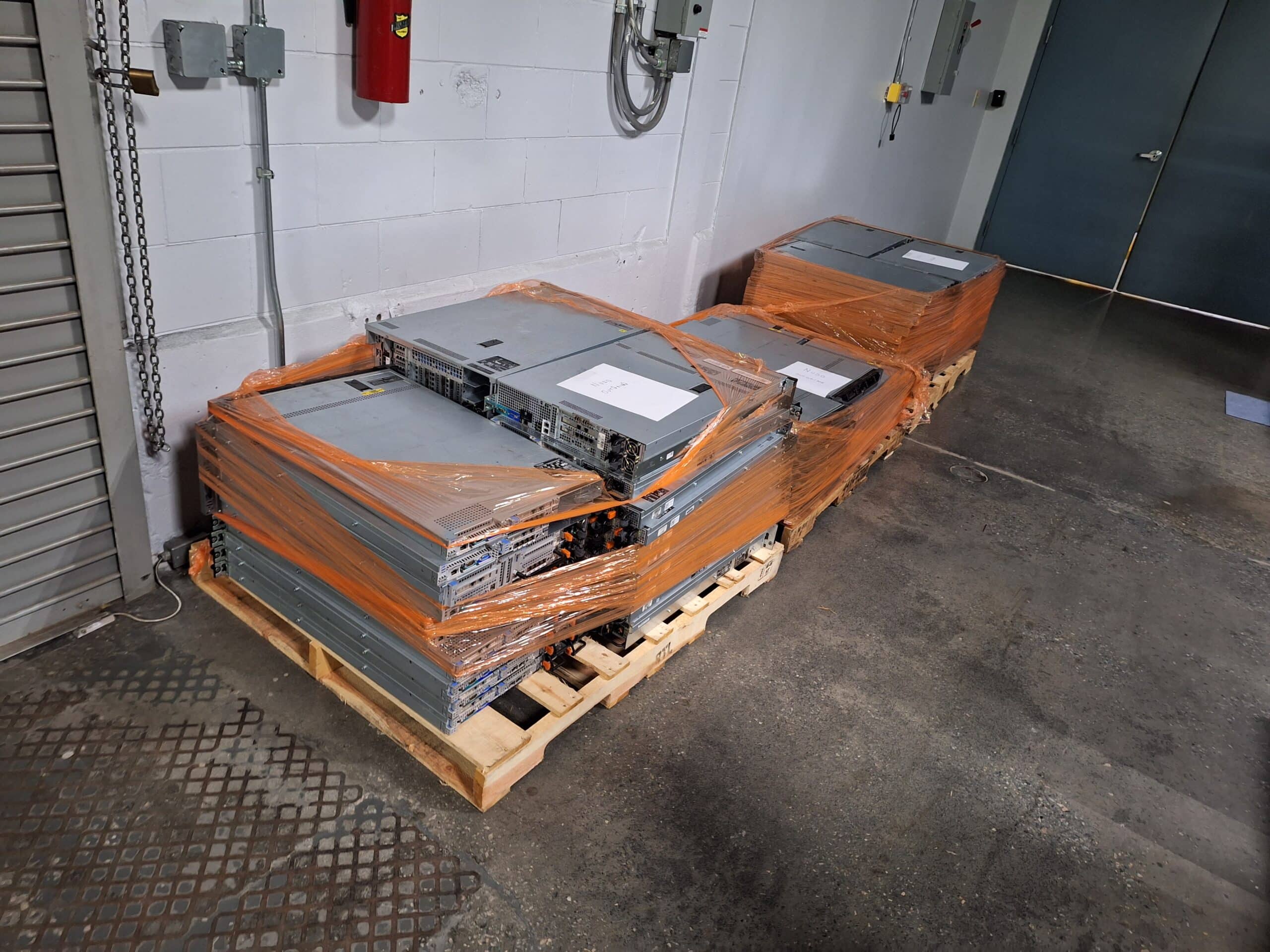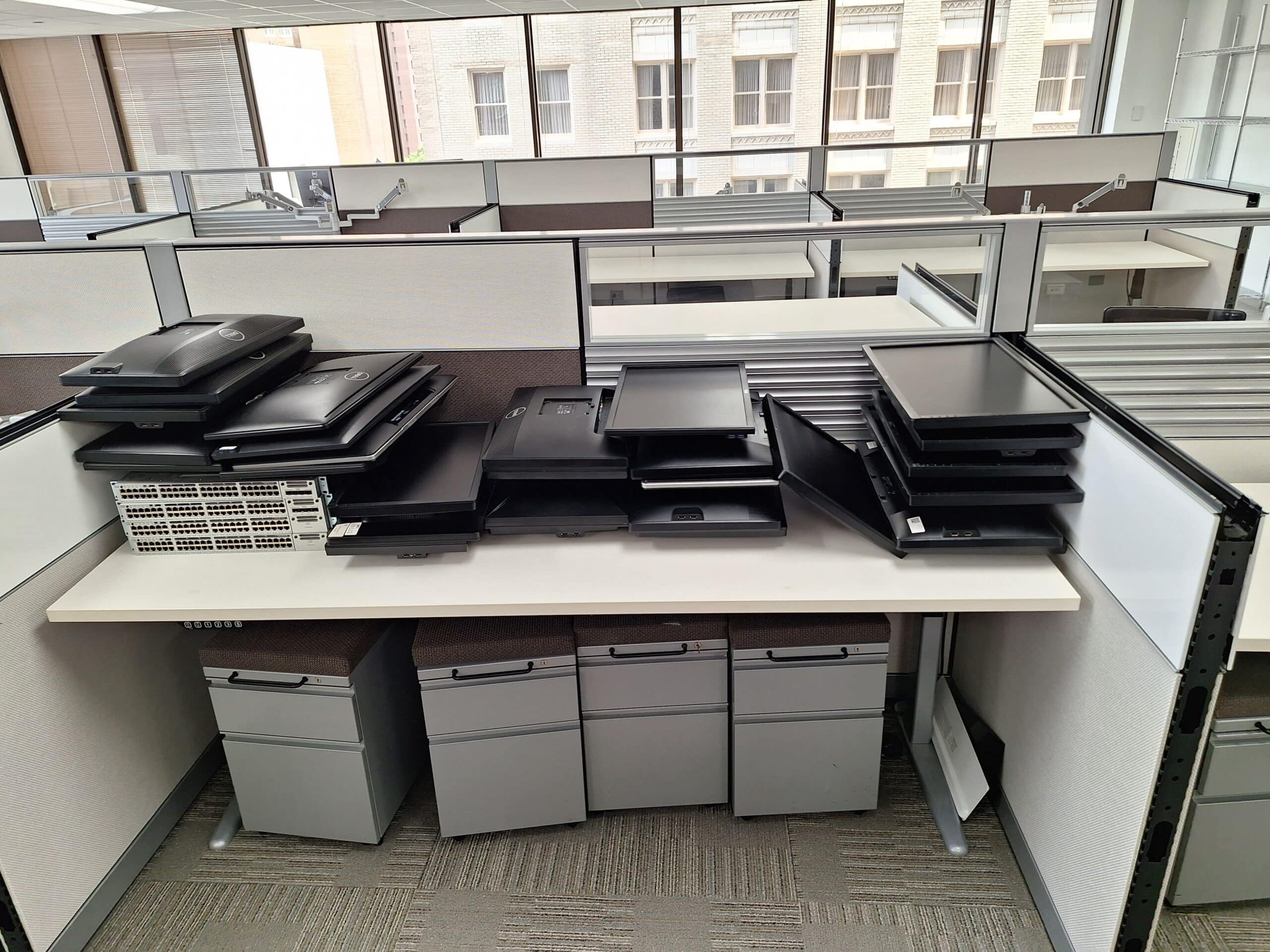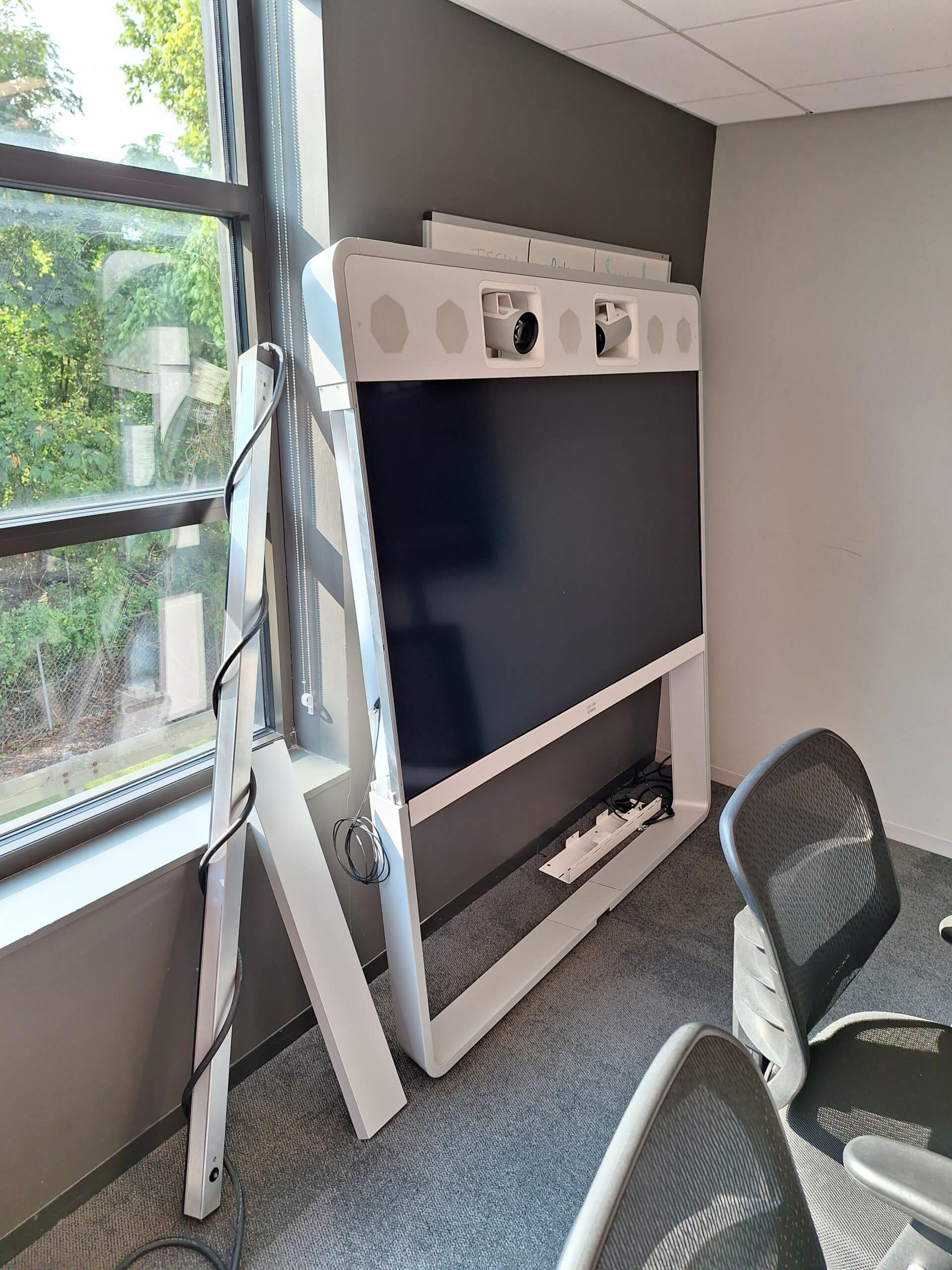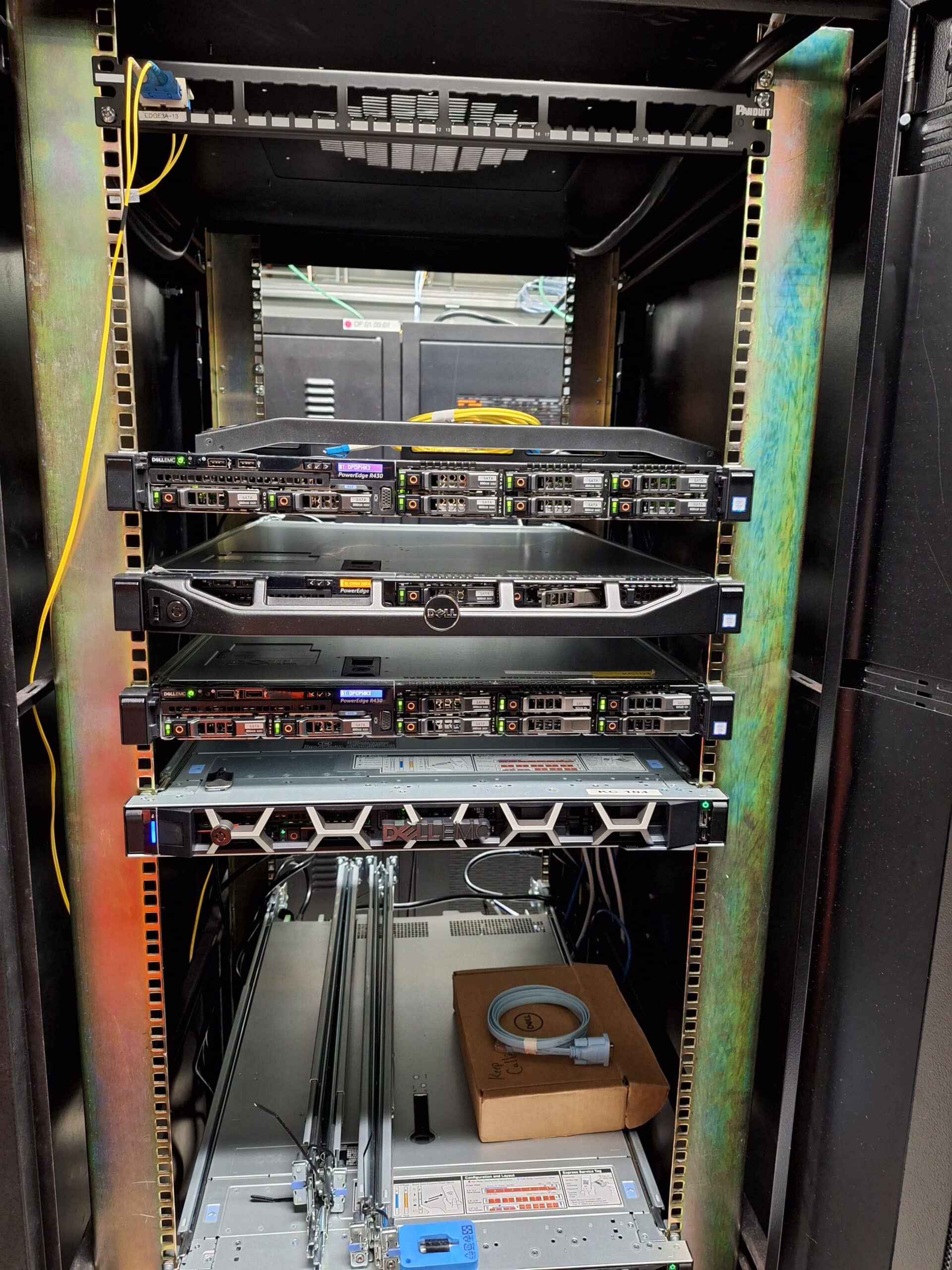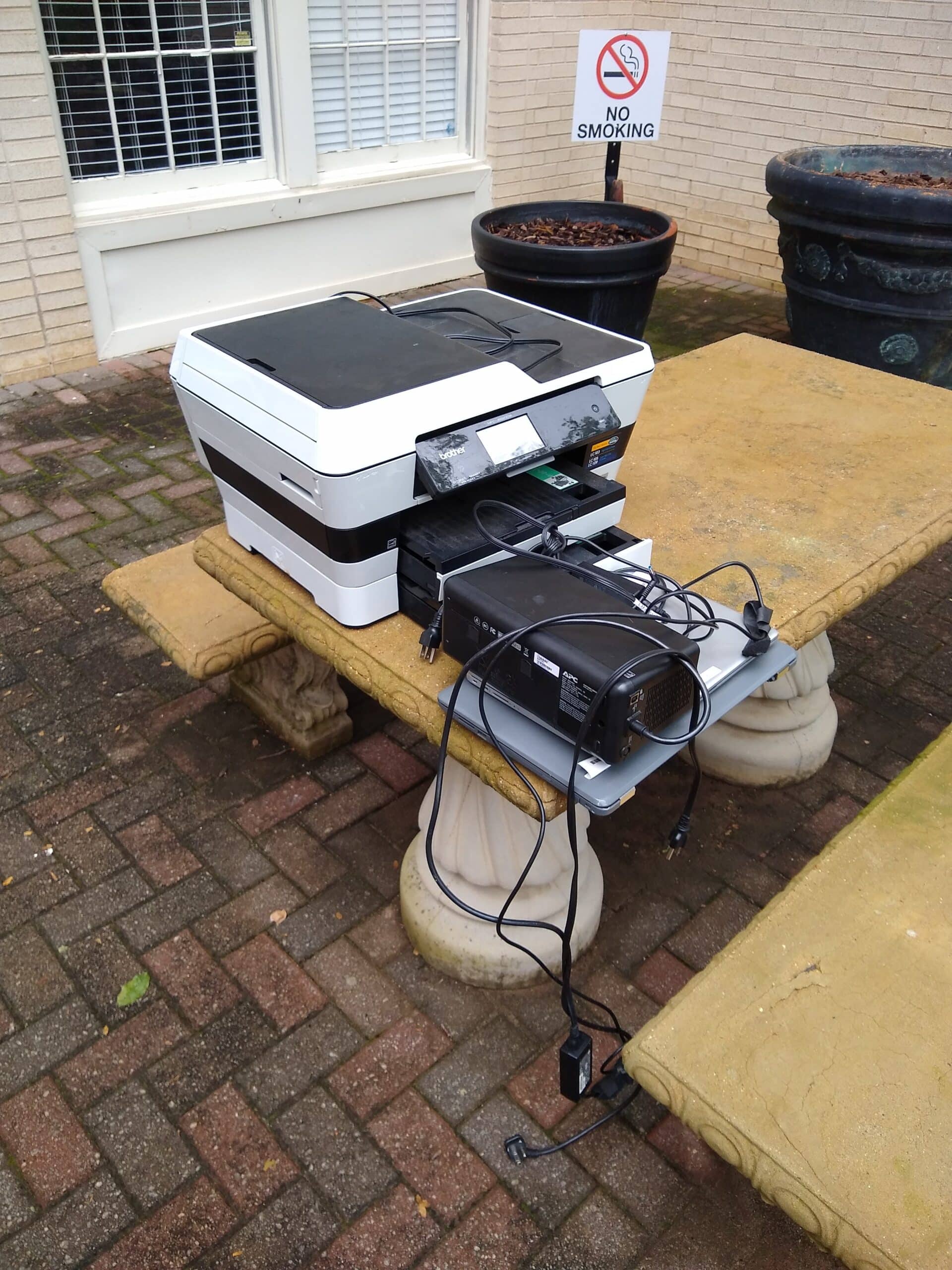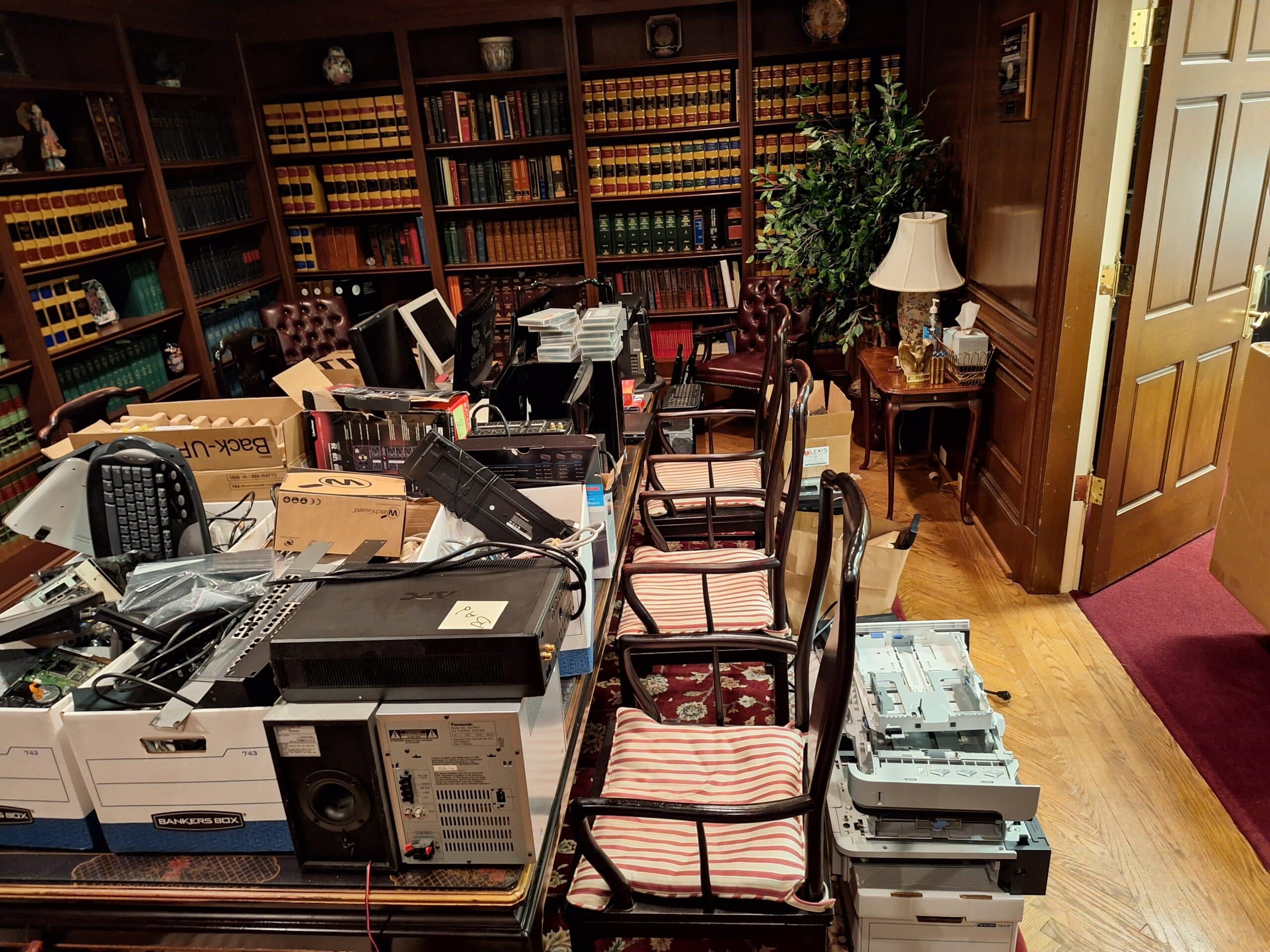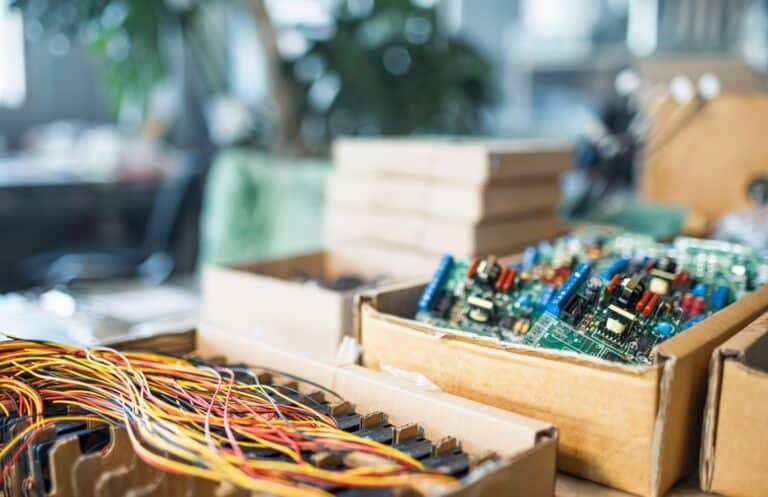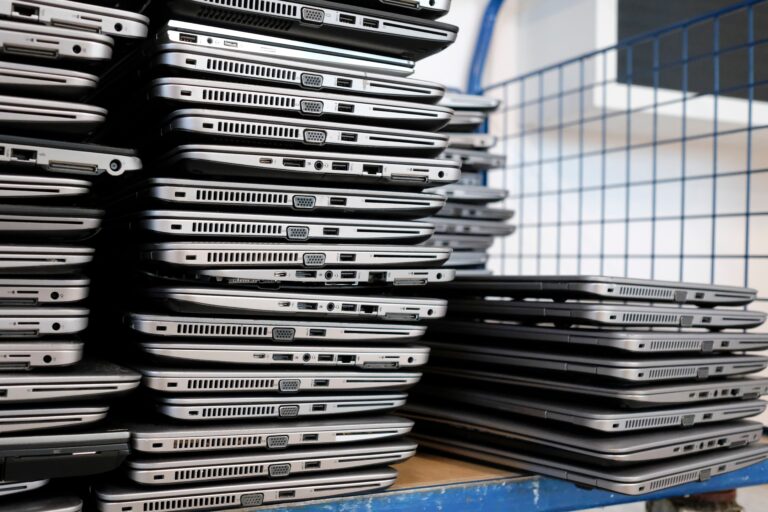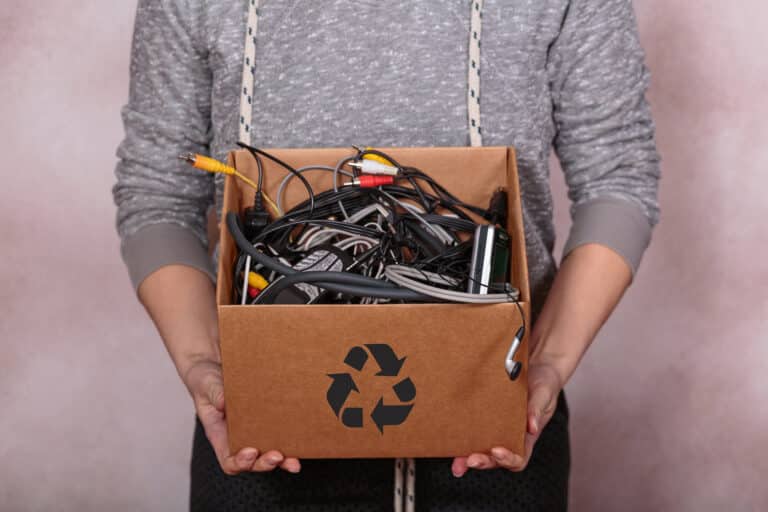Atlanta Recycling Advantages byfar surpass the cons of not recycling. Computer recycling or electronic recycling is the recycling or reuse of computers or other electronics. It includes both finding another use for materials (such as donation to charity), and having systems dismantled in a manner that allows for the safe extraction of the constituent materials for reuse in other products.
Atlanta Recycling Reasons
Obsolete computers or other electronics are a valuable source for secondary raw materials, if treated properly; if not treated properly, they are a source of toxins and carcinogens. Rapid technology change, low initial cost, and even planned obsolescence have resulted in a fast-growing surplus of computer or other electronic components around the globe. Technical solutions are available, but in most cases a legal framework, a collection system, logistics, and other services need to be implemented before a technical solution can be applied.
According to the U.S. Environmental Protection Agency, an estimated 30 to 40 million surplus PCs, which it classifies under the term “hazardous household waste”, will be ready for end-of-life management in each of the next few years. The U.S. National Safety Council estimates that 75% of all personal computers ever sold are now surplus electronics.
Call 404-905-8235 If You Have Questions
In 2007, the United States Environmental Protection Agency (EPA) said that more than 63 million computers in the U.S. were traded in for replacements—or they simply were discarded. Today 15 percent of electronic devices and equipment are recycled in the United States. Most electronic waste is sent to landfills or becomes incinerated, having a negative impact on the environment by releasing materials such as lead, mercury, or cadmium into the soil, groundwater, and atmosphere.
Many materials used in the construction of computer hardware can be recovered in the recycling process for use in future production. Reuse of tin, silicon, iron, aluminum, and a variety of plastics — all present in bulk in computers or other electronics — can reduce the costs of constructing new systems. In addition, components frequently contain copper, gold, and other materials valuable enough to reclaim in their own right.
Computer components contain valuable elements and substances suitable for reclamation, including lead, copper, and gold. They also contain many toxic substances, such as dioxins, polychlorinated biphenyls (PCBs), cadmium, chromium, radioactive isotopes, and mercury. A typical computer monitor may contain more than 6% lead by weight, much of which is in the lead glass of the cathode ray tube (CRT). A typical 15-inch computer monitor may contain 1.5 pounds of lead, but other monitors have been estimated as having up to 8 pounds of lead.
Circuit boards contain considerable quantities of lead-tin solders and are even more likely to leach into groundwater or to create air pollution via incineration. Additionally, the processing required to reclaim the precious substances (including incineration and acid treatments) may release, generate, and synthesize further toxic byproducts.
A major computer or electronic recycling concern is export of waste to countries with lower environmental standards. Companies may find it cost-effective in the short term to sell outdated computers to less developed countries with lax regulations. It is commonly believed that a majority of surplus laptops are routed to developing nations as “dumping grounds for e-waste”. The high value of working and reusable laptops, computers, and components (e.g., RAM) can help pay the cost of transportation for a large number of worthless “commodities”. Broken monitors, obsolete circuit boards, and short-circuited transistors are difficult to spot in a containerload of used electronics.
Atlanta Recycling Regulations
United States
Federal
The United States Congress considers a number of electronic waste bills, including the National Computer Recycling Act introduced by Congressman Mike Thompson (D-CA). Meanwhile, the main federal law governing solid waste is the Resource Conservation and Recovery Act of 1976. It covers only CRTs, though state regulations may differ. There are also separate laws concerning battery disposal. On March 25, 2009, the House Science and Technology Committee approved funding for research on reducing electronic waste and mitigating environmental impact, regarded by sponsor Ralph Hall (R-TX) as the first federal bill to address electronic waste directly.
State
Many states have introduced legislation concerning recycling and reuse of computers or computer parts or other electronics. Most American computer recycling legislation addresses it from within the larger electronic waste issue.
In 2001, Arkansas enacted the Arkansas Computer and Electronic Solid Waste Management Act, which requires that state agencies manage and sell surplus computer equipment, establishes a computer and electronics recycling fund, and authorizes the Department of Environmental Quality to regulate and/or ban the disposal of computer and electronic equipment in Arkansas landfills.
The recently[when?] passed Electronic Device Recycling Research and Development Act distributes grants to universities, government labs, and private industry for research in developing projects in line with e-waste recycling and refurbishment.
Atlanta Recycling Methods
Consumer recycling
Consumer recycling options include (see below) sale, donating computers directly to organizations in need, sending devices directly back to their original manufacturers, or getting components to a convenient recycler or refurbisher.
Corporate recycling
Businesses seeking a cost-effective way to recycle large amounts of computer equipment responsibly face a more complicated process.
Businesses also have the options of sale or contacting the Original Equipment Manufacturers (OEMs) and arranging recycling options.
Some companies will pick up unwanted equipment from businesses, wipe the data clean from the systems, and provide an estimate of the product’s remaining value. For unwanted items that still have value, these firms will buy the excess IT hardware and sell refurbished products to those seeking more affordable options than buying new. Companies that specialize in data protection and green disposal processes dispose of both data and used equipment while at the same time employing strict procedures to help improve the environment. Professional IT Asset Disposition (ITAD) firms specialize in corporate computer disposal and recycling services in compliance with local laws and regulations and also offer secure data elimination services that comply with data erasure standards.
Corporations face risks both for incompletely destroyed data and for improperly disposed computers. In America companies are liable for compliance with regulations even if the recycling process is outsourced under the Resource Conservation and Recovery Act. Companies can mitigate these risks by requiring waivers of liability, audit trails, certificates of data destruction, signed confidentiality agreements, and random audits of information security. The National Association of Information Destruction is an international trade association for data destruction providers.
Scrapping/recycling
For systems which are obsolete or no longer useful to its user, recycling is often the only choice available. This is usually done by breaking down the equipment into its component parts, such as plastics and metals. These parts can then be recycled through various methods depending on the material. Recyclers typically charge a fee, but in return many (see e-Stewards) have a zero-landfill policy and the sorted or shredded pieces are melted down to recover their component materials for re-use.
Early pioneering efforts to e-waste
The first major publication to report the recycling of computers and electronic waste was published on the front page of the New York Times on April 14, 1993 by columnist Steve Lohr.
Atlanta Recycling Data Security
Data security is an important part of computer recycling. Federal regulations mandate that there are no information security leaks in the lifecycle of secure data; this includes its destruction and recycling. There are a number of federal laws and regulations, including HIPAA, Sarbanes-Oxley, FACTA, GLB, which govern the data lifecycle and require that establishments with high and low-profile data keep their data secure.
Recycling computers can be dangerous when handling sensitive data, specifically to businesses storing tax records or employee information. While most people will try to wipe their hard drives clean before disposing of their old computers, only 5 percent rely on an industry specialist or a third party to completely clean the system before it’s disposed of according to an IBM survey. Industry standards recommend a 3X overwriting process for complete protection against retrieving confidential information.
This means a hard drive must be wiped three times in order to ensure the data cannot be retrieved and possibly used by others.
Atlanta Recycling Reasons to destroy and recycle securely
There are ways to ensure that not only hardware is destroyed but also the private data on the hard drive. Having customer data stolen, lost, or misplaced contributes to the ever growing number of people who are affected by identity theft, which can cause corporations to lose more than just money. The image of a company that holds secure data, such as banks, law firms, pharmaceuticals, and credit corporations is also at risk. If a company’s public image is hurt that could cause consumers to not use their services and could cost millions in business losses and positive public relation campaigns. T
he cost of data breaches “var[ies] widely ranging $90 to $50,000 (under HIPAA’s new HITECH amendment, that came about through the American Recovery and Revitalization act of 2009) per customer record, depending on whether the breach is “low-profile” or “high-profile” and the company is in a non-regulated or highly regulated area, such as banking or medical institutions.” There is also a major backlash from the consumer if there is a data breach in a company that is supposed to be trusted to protect their private information.
If an organization has any consumer info on file, they must by law (Red Flags Clarification act of 2010) have written information protection policies and procedures in place, that serve to combat, mitigate, and detect vulnerable areas that could result in identity theft.
The United States Department of Defense has published a standard to which recyclers and individuals may meet in order to satisfy HIPAA requirements.
Atlanta Secure Recycling
The typical process for computer recycling aims to securely destroy hard drives while still recycling the byproduct. A typical process for effective computer recycling accomplishes the following:
Receive hardware for destruction in locked and securely transported vehicles
Atlanta Recycling Hard Drive Shredding
Separate all aluminum from the waste metals
Collect and securely deliver the shredded remains to an aluminum recycling plant
Mold the remaining hard drive parts into aluminum ingots
City Of Atlanta Information
Learn More About Atlanta on Wikipedia.com
Open & Explore Atlanta Google Map on maps.google.com
Locate Nearby Atlanta Google pharmacies on google.com
Browse List of Atlanta public and private schools on GreatSchools.Org
View Current Atlanta weather report weather.com
